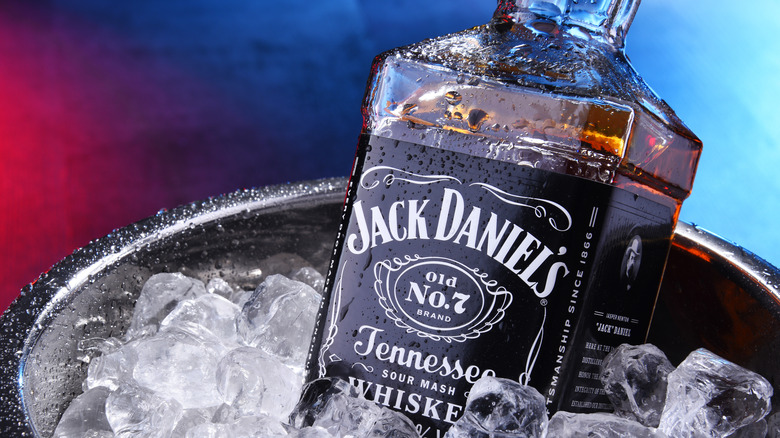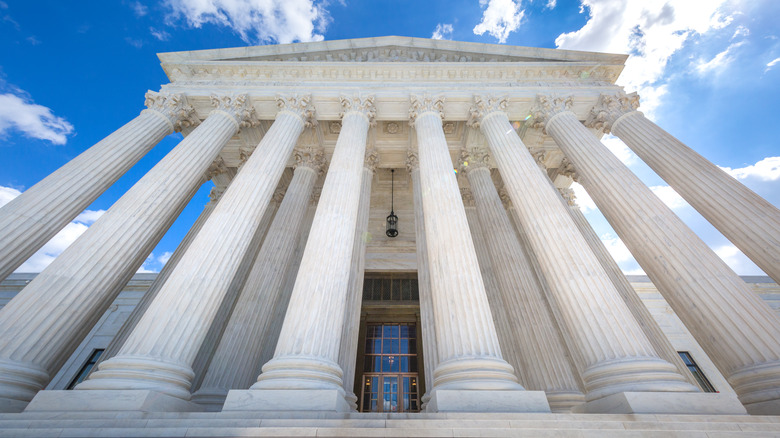Why On Earth Is Jack Daniels Suing A Dog Toy Company?
Picture this: You're scanning the bar shelf when a familiar label and bottle appears. The black background with a signature white font denotes Old No 7, a quality Tennessee sour mash whiskey. A person who wants a scotch is not going to see that Jack Daniels bottle and ask for a pour. In the case, Jack Daniel's v. VIP Products heard before the U.S. Supreme Court, Jack Daniels sued dog toymaker VIP Products for trade infringement and sought to prevent the sale of toys that could be mistaken for the Tennessee whiskey.
While no one is suggesting that a beloved pooch is drinking whiskey from its dog bowl, Reuters reports that this case debates whether the "Bad Spaniel" dog toy confuses the consumer versus an expressive work in the form of a parody. As Vox shared from the plaintiff's brief, "Jack Daniel's loves dogs and appreciates a good joke as much as anyone. But Jack Daniel's likes its customers even more and doesn't want them confused or associating its fine whiskey with dog poop."
The case hinges on whether or not a cheeky dog toy could confuse a consumer to think that the portrayal was authorized by Jack Daniels. The balance between the Langham Act, which protects against trademark infringement, and the Rodgers Test, which addresses an expressive work's reasonableness, is one of the issues to be decided. While oral arguments have been presented, the Supreme Court ruling will not be published until June.
Trademarks, customer confusion, and expressive works can be a recipe for disaster
Walking down the whiskey aisle, liquor drinkers likely appreciate that a rectangular bottle with a black label will taste quite different from a shorter bottle with a red wax seal. Companies put time and resources into making images associated with the brands. While trademark law can protect that registered item, the line between expressive work and customer confusion is not a clear one. As seen in the Jack Daniels vs. VIP Products case, the determination of reasonableness can be debated.
Mark Sommers, a trademark attorney based in Washington, D.C., explained to CNN that the issue is whether trademark rights supersede First Amendment rights in a parody. Beyond people having to get the joke, Jack Daniels does not want that humor to dilute its business reputation. Weighing whether the consumer can distinguish between the joke and the brands versus the potential of using trademarked images to dupe consumers with inappropriate products will be settled. Jack Daniels has spent time and money to build its reputation and doesn't want this situation to cause a consumer to choose another whiskey brand.
In a comedy special, not everyone laughs at the joke. Knowledge, background, and a variety of other elements contribute to that chuckle. Regarding trademark infringement, customer confusion, and expressive works, the concept cannot be evaluated in a bubble. The idea of what is reasonable can be discussed over a bottle of Jack Daniels long after nine justices make their ruling.

